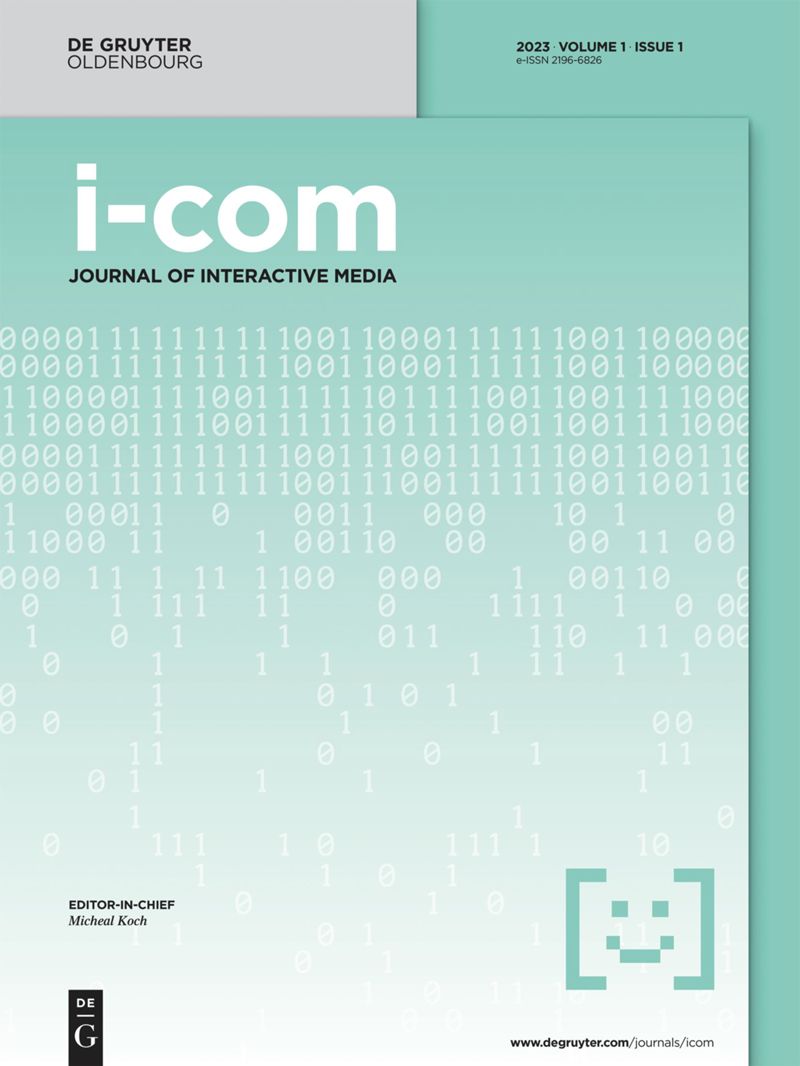 Special Issue on Usable Safety and Security (Open Access)
Special Issue on Usable Safety and Security (Open Access)
Local disasters such as the Ahr Valley flood in Germany, the international consequences of the Russian invasion of Ukraine, the global COVID-19 pandemic, the long-term effects of biodiversity loss and climate change, as well as numerous conflicts and crises worldwide place high demands on the people and organisations that are involved in these situations and contexts to save lives, mitigate damage, provide comfort, or organise reconstruction.
Although computer-based solutions have become indispensable, new technologies are constantly making their way into everyday life, such as big data and its analysis with artificial intelligence, the Internet of Things (IoT) and the development of disruption-tolerant networks, or the development of so-called digital twins in virtual reality, whose adaptation, acceptance, usability, usefulness, and legal framework conditions for safety-critical systems must be researched and tested thoroughly.
These technologies also pose new challenges and problems for people and organisations in safety-critical situations, which must be considered in both research and practice. While social media, for example, can help to mobilise volunteers and improve situational awareness, inconsistent and incorrect information, the flood of information in large-scale emergencies, uncoordinated activities and a lack of financial and human resources can increase the complexity of tasks for organisations.
In this special issue, the guest editors Marc-André Kaufhold (Technical University of Darmstadt), Tilo Mentler (Trier University of Applied Sciences), Simon Nestler (Technische Hochschule Ingolstadt), and Christian Reuter (Technical University of Darmstadt) invited contributions that investigate the use of computer-based solutions in areas and situations of direct relevance to people’s lives and well-being (Usable Safety), as well as contributions to user-oriented concepts of the resilience of sociotechnical systems concerning potential attacks (Usable Security).
Editorial
Our editorial provides a concise background on usable safety, security and privacy, the underlying call for contributions, and the accepted papers. Overall, we accepted five papers on usable safety and five papers on usable security and privacy.
- Kaufhold, M.-A., Mentler, T., Nestler, S., & Reuter, C. (2025)
The tension of usable safety, security and privacy
i-com – Journal of Interactive Media, 24(1). https://doi.org/10.1515/icom-2025-0009
Usable Safety
A first selection of papers deals with crisis informatics and management, including the topics of control room collaboration, crisis management exercises, citizen warning, infection prevention, and hate speech detection.
- Pöhler, J., Flegel, N., Mentler, T., & Van Laerhoven, K. (2025)
Keeping the human in the loop: Are autonomous decisions inevitable?
i-com – Journal of Interactive Media, 24(1). https://doi.org/10.1515/icom-2024-0068 - Hellmund, T., Kayser, H., & Moßgraber, J. (2025)
iSAM – towards a cost-efficient and unobtrusive experimental setup for situational awareness measurement in administrative crisis management exercises
i-com – Journal of Interactive Media, 24(1). https://doi.org/10.1515/icom-2024-0056 - Haunschild, J., Henkel, M., & Reuter, C. (2025)
Breaking down barriers to warning technology adoption: Usability and usefulness of a messenger app warning bot
i-com – Journal of Interactive Media, 24(1). https://doi.org/10.1515/icom-2024-0067 - Sibirski, A., & Veiel, D. (2025)
Use of context-based adaptation to defuse threatening situations in times of a pandemic
i-com – Journal of Interactive Media, 24(1). https://doi.org/10.1515/icom-2024-0065 - Bäumler, J., Voronin, G., & Kaufhold, M.-A. (2025)
Cyber hate awareness: Information types and technologies relevant to the law enforcement and reporting center domain
i-com – Journal of Interactive Media, 24(1). https://doi.org/10.1515/icom-2024-0062
Usable Security and Privacy
A second selection of papers focuses on usable security and privacy, including the topics of information security policies, digital identity wallets, insurance risk assessments, privacy assistants, and smart home privacy.
- Lawo, D., & Stevens, G. (2025)
From usable design characteristics to usable information security policies: A reconceptualisation
i-com – Journal of Interactive Media, 24(1). https://doi.org/10.1515/icom-2024-0066 - Sauer, M., Becker, C., Kneis, L., Oberweis, A., Pfeifer, S., Stark, A., & Sürmeli, J. (2025)
A case study of the MEUSec method to enhance user experience and information security of digital identity wallets
i-com – Journal of Interactive Media, 24(1). https://doi.org/10.1515/icom-2024-0057 - Jakobi, T., Arslan, S., & Harms, P. (2025)
Evaluating GDPR right to information implementation in automated insurance decisions
i-com – Journal of Interactive Media, 24(1). https://doi.org/10.1515/icom-2024-0071 - Kiss, L., & Sellung, R. (2025)
Human-centered design of a privacy assistant and its impact on perceived transparency and intervenability
i-com – Journal of Interactive Media, 24(1). https://doi.org/10.1515/icom-2024-0064 - Jüttner, V., Fleig, A., & Buchmann, E. (2025)
ChatAnalysis revisited: Can ChatGPT undermine privacy in smart homes with data analysis?
i-com – Journal of Interactive Media, 24(1). https://doi.org/10.1515/icom-2024-0072
About the Journal: i-com – Journal of Interactive Media
The journal is devoted to human-computer interaction, media design, usability, engineering and systems evaluation, software ergonomics, cooperative systems, e-learning, mobile and ubiquitous systems, user-adaptive systems, agent development tools and methods for media in different application fields (including e-business, knowledge management, leisure and entertainment, transport, engineering, and medicine), barrier-free systems design, and the social aspects of information and communication technologies.
The journal seeks to build bridges between research and practice as well as between teaching and business, emphasizing interdisciplinary teamwork and application-oriented solutions. The journal is the official organ of the special interest group on “Human-Computer Interaction (HCI)” in the German Association for Informatics (GI). i-com is an open access journal since 2023. It publishes English-language articles only. The publication frequency is three times per year.
Acknowledgement
This special issue was organised by the special interest group Usable Safety and Security, originally founded in 2015 under the name Human-Machine Interaction in Safety-Critical Systems, within the Human-Computer Interaction division of the German Informatics Society (GI). We would like to thank all the authors and reviewers who made this special issue possible.
The special issue is also available on the publisher’s website: https://www.degruyterbrill.com/journal/key/icom/24/1/html
